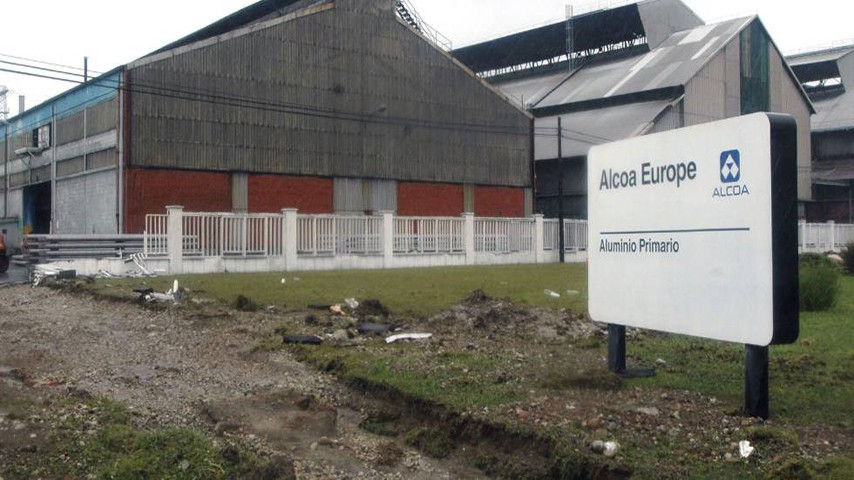The measure affects about 700 workers in the factories of A Coruña and Aviles in which losses are recorded. The company maintains the activity in the Lugo plant
The multinational Alcoa announced on Wednesday to its European committee the decision to close two plants in Spain, those of Avilés and A Coruña, which employ, respectively, 317 and 369 workers. The company, which has explained to the workers the start of a “collective dismissal procedure” appealing to the high price of energy and alumina, the raw material, which have caused losses in both factories, keeps its production in the plant of San Cibrao (Lugo), which produces both aluminum and alumina. Although unexpected, the announcement has not surprised the workers: their union representatives maintain that the multinational has been letting both plants die without hardly investing in them, which has caused a “progressive loss of competitiveness.”
The company committees maintain that the closure has been flying over these two Alcoa plants in Spain for four years: since the multinational has to go to an annual auction in competition with other large intensive industries to get bonuses in its electricity tariff.
At the end of 2014, the company presented an ERE of extinction for the 800 workers who then added the factories of A Coruña and Avilés after having obtained less economic incentives than expected to meet the expenses in the interruptibility auction. The ordago worked: the Government organized another bid that satisfied Alcoa and this withdrew the ERE. Two years later, Alcoa threatened to sell both factories. The announcement, also frustrated, coincided again with the imminent energy auction.
Last June, the president of the multinational company, Roy Harvey, visited the Asturian plant and warned that changes were needed in the high prices of electricity that you have then only increased. The increase in the price of raw materials and energy has a serious impact on the company that already announced losses for this year and foresees a similar situation for the next one.
The workers say that the company has subjected the plants of Aviles and A Coruña to a progressive abandonment. Just five months ago, the chairman of the works council of A Coruña, Juan Carlos López Corbacho -representative of the 369 employees who remained after the dismissal of a hundred coinciding with the first interlude auction held in 2014- noted the progressive loss of competitiveness of the factory.
Corbacho publicly warned that electricity accounted for 40% of the production costs for the multinational and that the energy framework for the large industry in Spain did not offer security in the long term so the Spanish plants were weakening while the company was hiding in that context of uncertainty not to renew.
In the case of the Coruñesa plant, the deterioration was “palpable”, according to Corbacho, both in the facilities and in the competitiveness, for which the trade unionist claimed a “stable” energy model. Similarly, the company has been progressively reducing production at the Avilés factory as the price of electricity increases.
Now, the company adduces “productive and technological structural problems” of the two plants, among which it cites “its lower production capacity, less efficient technology and high fixed costs” and stresses that these structural problems, together with external market factors, such as China’s overcapacity of production, the high price of raw materials and the cost of energy, “have generated significant losses in these plants in the last two years. Losses that are expected to continue. ”
The situation in the Lugo factory, with 1,600 workers, is different. The company “can deal with the poor results of the alumina plant with the benefits it obtains with aluminum, so there are no losses here,” says the union representative of the CIG on the works council, José Manuel Peña . The workers of the plant in Lugo have told the management their “total disagreement” with the closure of the other two factories.
The Government urges the company to negotiate
Both the Xunta de Galicia and the Principality of Asturias have rejected the decision and the Galician president, Alberto Núñez Feijóo, has blamed the Government for not having spent “the economic part reserved in the General Budgets of 2018 for electrointensive companies”. For his part, the Asturian president, Javier Fernández, has rejected “the unusual way of proceeding” of the company that, he assures, until now had not warned “by any means” of this possibility.
The Ministry of Industry, Commerce and Tourism has shown its surprise and concern over the announcement that, while maintaining, the company “had never reported that it could take a decision in this regard” in the meetings held in the last three months and has asked the company to start a process of

